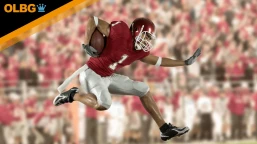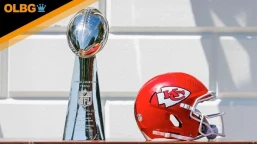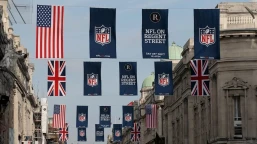
With over 100 different betting sites, finding the best can be confusing. I'll guide you through the features that matter, so you can find the most suitable bookie for you.
Welcome to the second in a series of blogs aimed at helping casual or new fans of American Football.
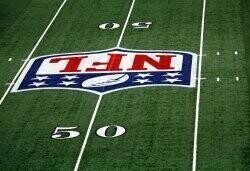
As I've stated before, I believe most people understand the basics of the game.
If you are new to wagering on the NFL you can always check out the article below.
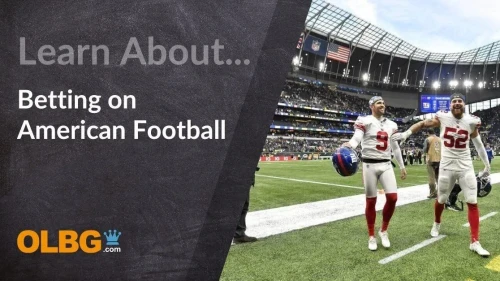
Betting on NFL: A Guide to the Best Markets and Events
You can also check the top NFL tipsters and their weekly tips.
What I'm trying to do in this blog is to give fans a bit more meat on the bones.
Here I am going to concentrate on the offensive side of the NFL.
We'll look at some of the “additional” positions that have become popular, and some of the terms that are used when talking about NFL offense.
- How teams move the ball.
- The need to gain 10 yards in four attempts (downs).
- How the game scores.
- Formations.
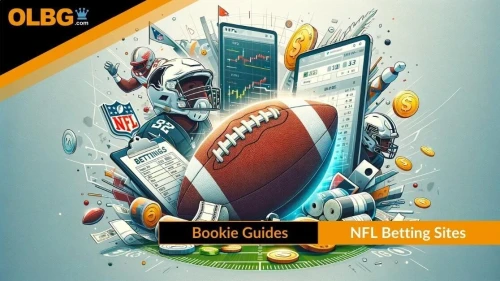
The Top NFL Betting Sites 2025
Passing The Ball In The NFL
The pass is the most popular way of moving the ball in today's NFL.
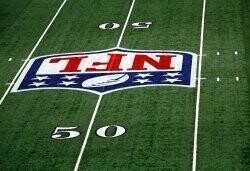
The evolution of the rules and the style of coaching has seen the pass become king
Whilst running the ball is still widely used and effective, the pass is what gives an offense it's edge.
It is the ability of the pass to hurt a defense from anywhere on the field and bring big, game momentum changing plays.
Two terms you'll see a lot of are the “Pistol” and Shotgun”.
Quarterbacks are increasing taking the snap away from right behind the Center and having the ball snapped back to them.
The advantage of that is the QB can see the defense and downfield clearer.
The disadvantage is it tips your hat to the defense who will be expecting a pass.
In the pistol, a QB will stand about 5 yards directly behind the center but he'll also have a running back directly behind him.
This keeps the running options open.
In the shotgun, he'll be about 7 yards back and possibly have a running back next to him rather than behind.
 alamy
alamy
If he is alone behind center this is called an “empty backfield”.
Another thing to note with the increase in passing of the football is the increased use of the “Slot Receiver” into what is almost a specialist position.
This will usually be the team's third-choice Wide Receiver but he'll line up inside one of the other receivers nearer to the offensive line.
This receiver will often work the middle of the field and is also usually covered by a substitute defender so can often a mismatch.
It's popular for this type of receiver to be a smaller, shifty player with good quickness
He will usually be effective after the catch.
However he can be in line for some punishment from defenders, as working the middle usually means drawing coverage from Linebackers and Safeties.
NFL Formations
The way an offense lines up with different personnel is one of the key things to note as you watch the game.
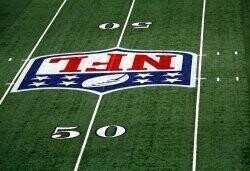
It can be a tip to what the play is going to be.
It is a way for offenses to get their most effective personnel on the field, and also try to create mismatches as defenses try to adjust.
For example, an offense wants to run the ball.
They may take a Wide Receiver off the field and replace them with a Tight End.
Sometimes they'll come in with three Tight Ends offering a “power look”.
Tight End's are dual-purpose players, expected to be good intermediate receivers but also effective blockers.
Defenses will see this and know that the run is likely to be coming but depending on the situation if the offense only needs a small amount of yardage for either a fresh set of downs or a touchdown it can be tough to stop.
On the flip side of that, when a team needs to pass, they can go with three, four, or even five Wide Receivers.
This means the defense must adjust and bring in extra defensive backs to cover these receivers.
It has the effect of spreading the field and giving the defense the worry of having so much to field to cover as they can be attacked from every direction.
The disadvantage of these type of formations is it means an offense must go with limited protection for the Quarterback.
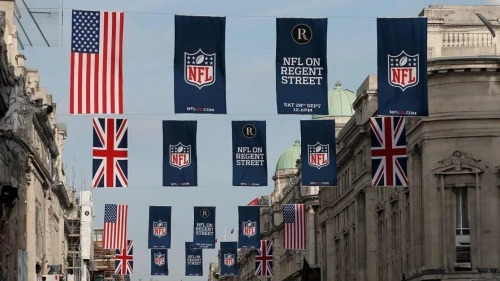
The Most Popular NFL Teams in the UK
No extra blockers are staying in to help and if a defense either rushes the passer well or blitz with extra defenders it means the Quarterback won't have much time to pass the ball
The quarterback could either be sacked for a loss of yardage or hurried into a mistake.
One other thing to note as an offense line up is the use of motion.
One eligible receiver can be in motion before the ball is snapped.
He can only move from side to side and not go forward (or this is a penalty).
Offenses like to do this to keep a defense guessing or to sometimes get the motion man “lost” in the coverage.
An example would be a Tight End going in motion, then faking a block so he is ignored by the defenders in terms of expecting him to be a target, then he'll sneak out and hopefully not draw any coverage allowing him to get open and make a play.
Play Calling In The NFL
How do offenses call their plays?
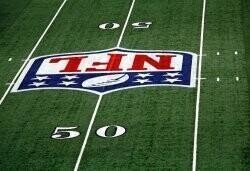
Coaches have what is known as a playbook with all of their plays that they have designed in it.
They won't use all the plays every game, they'll adjust the plays they use each week depending on the opponent and how best they feel they can take advantage of their weaknesses.
These selections of plays are called the game plan.
Plays are communicated via radio to the Quarterback who has an earpiece receiver in his helmet.
The QB then relays the play to his teammates in the huddle or at the line of scrimmage as they line up to start the play.
A play call will give information for if the play is a run or pass, what the formation is, and if there is any motion before the snap.
If the radio fails (which can happen at times) teams will signal in the play from the sideline with the use of hand signals, which can be very amusing at times!
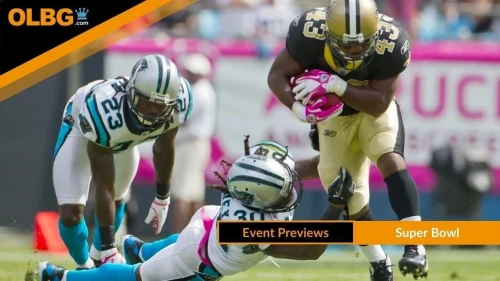
Super Bowl LX Betting Guide
In a situation where the offense needs to move quickly due to time constraints or the game situation then the Quarterback can call the plays himself.
He'll usually have a set of plays for this with quick code words.
Also, a Quarterback can sometimes change a play at the line of scrimmage before the snap.
If he sees the defense lining up a certain way or believes they have anticipated the play they are about to run he can change the play, again by use of a code word.
This is called an “audible”.
Running The Ball In The NFL
Finally, I'll cover some of the nuances regarding running the ball.
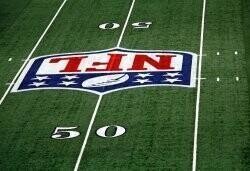
Whilst offenses do run the ball less than in the past it is still a massive part of any offense.
One thing you'll hear a lot of chatter from commentators about is the style of running plays team's run.
Some teams like to be a power offense, using their big, strong offensive lineman to win one-on-one battles with their opposing defenders and pushing them as far downfield as possible.
You'll also see lineman “pull” from their position to gain momentum and lead a back into the hole they are attempting to create.
These will be covered by terms such as a trap or counter.
The other main style of running the ball is zone blocking where lineman go to block an area rather than a specific defender.
Usually, this will be done by flowing in one direction and as the back receives the ball on the handoff he'll then seek the best hole created by the blocking.
You'll also hear this play referred to as the stretch play.
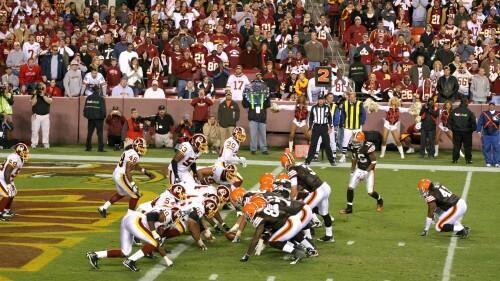
NFL: International Series Trends
This is only a small selection of the terms and styles of play that you can see during a game.
When watching and enjoying the game this reference and the NFL betting advice blog can help, which can only be a good thing.
As always, feedback and comments are welcome.
Contributor information
We are spoiled with our Expert team at OLBG with our Commercial Content manager Luke Bradshaw-Lee being a keen UK-based NFL fan attending London games and burning the midnight oil to catch all the weekend action, He is ably assisted with inside info from, Michael Calabrese [@EastBreese] ; an Action Network correspondent and College sports podcaster in the US with the deepest football knowledge we have ever come across. They combine to create the best American Football content on OLBG which assists our tipsters in making their NFL predictions in the tipping competition.
The data in this article is maintained and updated regularly by Andy Powell and James Banting from our Tipster Competition team who settle and manage all the tips in that seection

